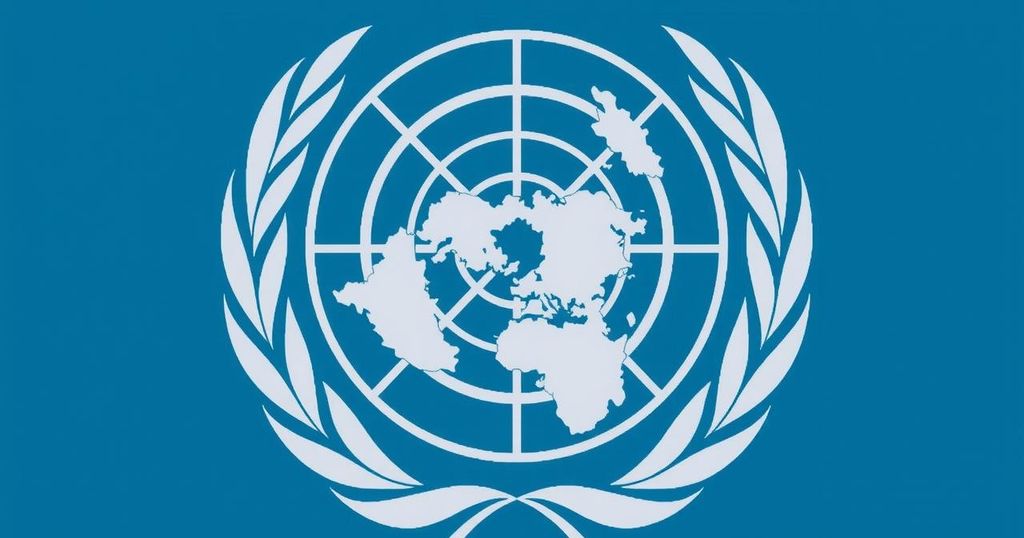Congo’s Dilemma: Withdrawal of UN Peacekeepers Amid Rising Violence and Mineral Conflict

The Democratic Republic of the Congo is urging the withdrawal of U.N. peacekeepers due to rising violence from Rwandan-backed rebels. While many Congolese express frustration with the U.N.’s effectiveness, there are significant concerns regarding security risks following a possible pullout. The region’s mineral wealth adds complexity to the conflict and international response, as multiple armed groups vie for control amid humanitarian crises affecting millions of displaced persons.
The Democratic Republic of the Congo (DRC) is calling for the withdrawal of United Nations peacekeepers amidst escalating violence, particularly from Rwandan-backed rebel groups. Originally slated for departure in December, U.N. forces remain in the country due to the ongoing conflict and instability that threaten the local population, particularly in the mineral-rich eastern region. Despite the presence of the U.N. peacekeeping force, known as MONUSCO, many Congolese citizens express deep frustration with its effectiveness and demand an end to their mission. This complex situation is characterized by numerous armed groups operating in the region, with the M23 militia being a focal point of conflict. Backed by Rwanda, the M23 has conducted aggressive operations, creating insecurity for millions of internally displaced people. Attempts have been made to broker peace, including a ceasefire facilitated by the United States and Angola, yet clashes persist. Incidents of aggression towards civilians, coupled with the perception of the U.N. mission’s inadequacies, have led to protests against the peacekeepers. Many locals feel abandoned, believing the international presence has failed to protect them adequately. The U.N. has recognized the need to adapt its strategies to better address threats, although concerns about its operational scope remain. Central to the unrest is the strategic importance of the region’s minerals, such as cobalt and tantalum, which are critical to global supply chains, particularly in electronics manufacturing. This economic interest complicates the international response to the conflict and highlights the stakes involved in the region’s stability. The DRC government has signaled its intention to revise the timeline for the U.N. withdrawal, amid calls for continued support from international community leaders. Nonetheless, the departure of the peacekeeping force without a clear security plan could exacerbate the humanitarian crisis in the region, where the majority of the displaced population relies on U.N. protection. The international community remains watchful, understanding that the dynamics in eastern Congo are influenced by both local grievances and larger geopolitical interests.
The Democratic Republic of the Congo has been embroiled in conflict for decades, influenced heavily by its vast natural resources, which include valuable minerals like cobalt and gold. The eastern region of the DRC has seen a proliferation of armed groups, often vying for control over these resources. The U.N. peacekeeping mission, known as MONUSCO, was established to support stability and protect civilians in the context of this ongoing violence and has maintained a presence for over two decades. However, frustrations have grown over the efficacy of this mission, particularly regarding its ability to respond to serious threats posed by groups such as the M23 militia, which is reported to be supported by Rwanda. The government of the DRC recently expressed a desire to reclaim security responsibilities, prompting calls for the gradual withdrawal of U.N. forces amidst ongoing violence.
The situation in the Democratic Republic of the Congo remains fraught with tension as the government pushes for the removal of U.N. peacekeepers despite escalating violence from armed groups. The yearning for stability in a region rich in minerals is complicated by local resentment towards the U.N.’s perceived ineffectiveness. While the DRC authorities seek to reclaim control, the international community remains cautious about potential power vacuums that could arise from a hasty withdrawal of peacekeeping forces. The intersection of local unrest, international interests in mineral wealth, and the geopolitical landscape will be critical in shaping the future of peace and security in the DRC.
Original Source: apnews.com








